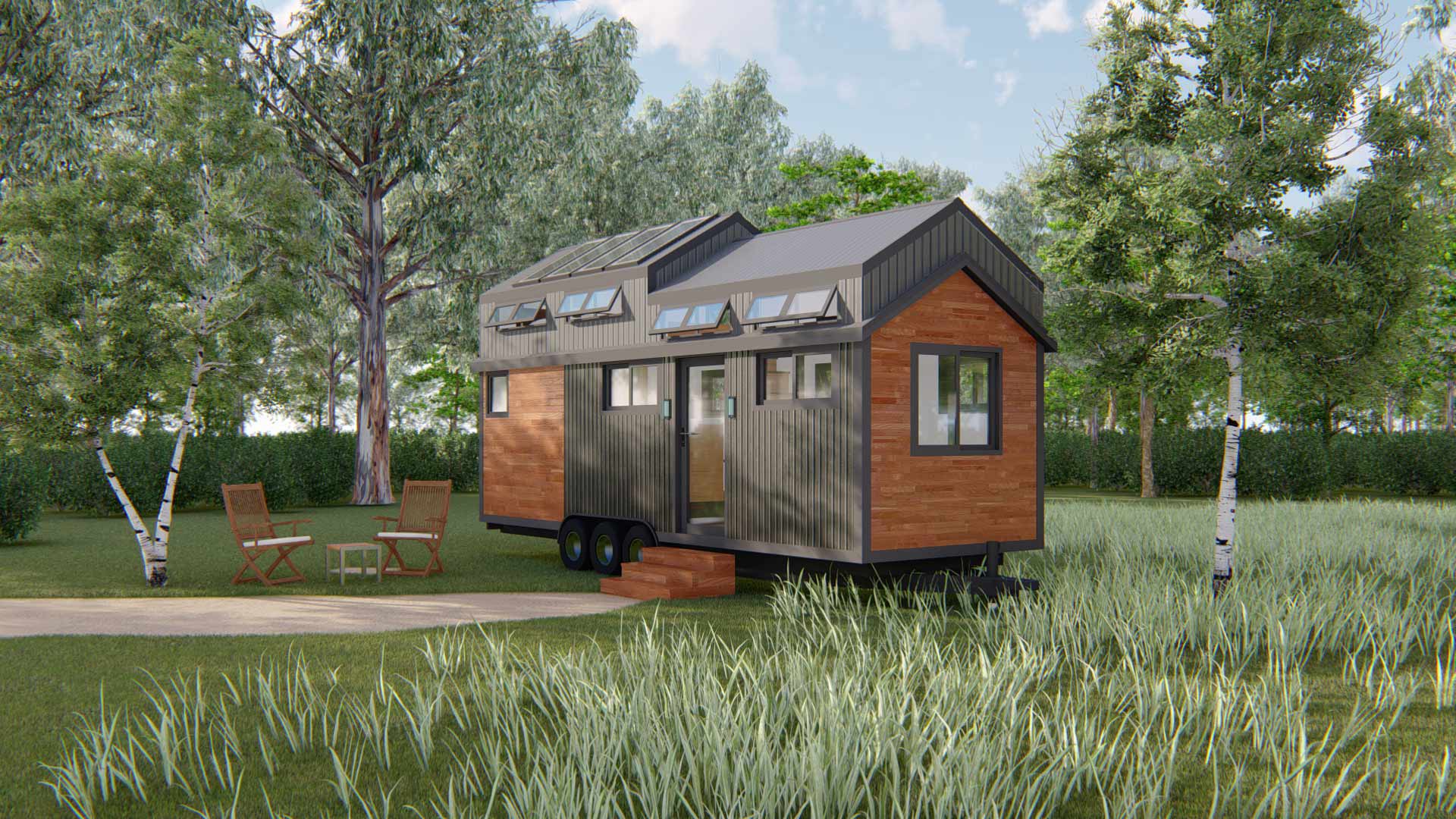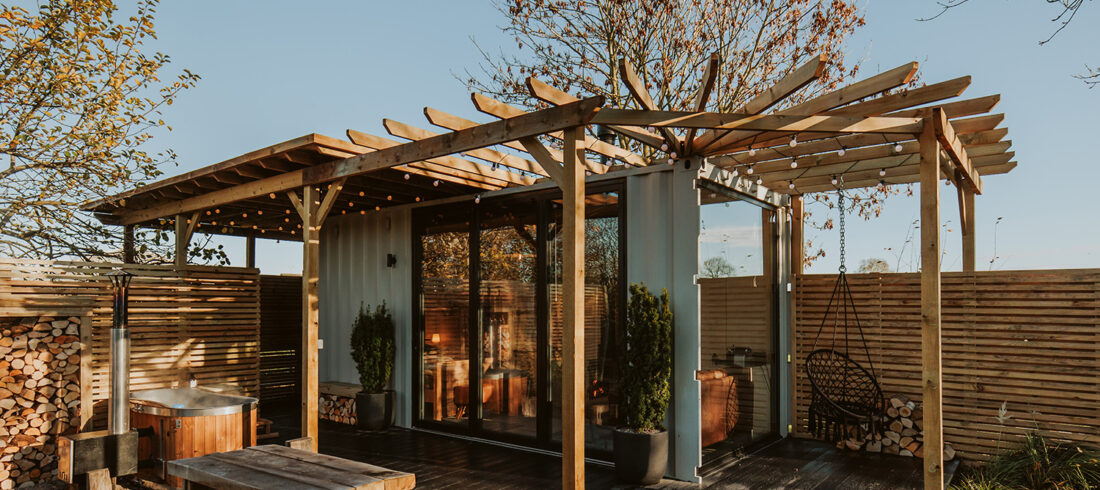As living costs and house prices continue to rise, more and more people are choosing to invest in alternative lifestyles. From skint graduates who can’t get a foothold on the property ladder to middle-aged parents pining for change, the movement continues to attract new converts. And it shows no signs of slowing down.
Recycled shipping containers have become the perfect antidote to this type of disillusionment. Cheaper than traditional bricks and mortar, transportable, and sustainable, they represent a chance to start again, reconnect with nature and each other, and find peace of mind. But is it as easy as just buying a unit, selling up and moving on?
Before you make any plans, it’s important to first understand how planning permission for a mobile home really works. Once we’ve helped you to cut through the red tape, the world really could be your oyster.
Is a Shipping Container Classed as a Mobile Home?
Caravans, campervans, motorhomes…there are so many different terms in common usage for mobile homes that you could be excused for being unsure. However, if you’re feeling the irresistible lure of the off-grid experience, it’s important to do a bit of research first. The last thing you want on day one of the rest of your life is to see your plans coming unstuck because of a minor technicality.
The first bit of good news is that the terminology is actually much more straightforward than you might think. Basically, any moveable structure that is designed, or adapted, to be lived in, meets the definition of a mobile home. That includes everything from recycled shipping containers to houseboats.
You can even transport a double container unit, so long as it:
- Has a maximum of two sections
- Can be moved when assembled
- Is under 20m in length, 6.8 width, and 3.05m in height
This makes it much easier for anyone who wants to ditch the rat race and reset, as you won’t need to go digging for niche laws specific to shipping containers and tiny houses. All you really need to understand is how mobile home planning permission works.
Planning Permission for Mobile Homes Explained
When looking into planning permission for a mobile home, everything could come down to one simple question: Is it going to be a temporary or permanent structure? The likes of shipping containers are usually classed as being temporary, which bypasses the need for permission. This is the case even if your mobile home doesn’t even currently have wheels.
However, as is often the case in UK law, this isn’t a hard and fast rule. There are occasions when you would need to apply for permission. Before you join the rise in off-grid living, take a moment to think about the following questions:
- How Will Your Mobile Home be Used? If it’s being used as a temporary structure (like a guest bedroom) you probably won’t need planning permission for a mobile home. However, if it’s going to be a permanent extension — i.e. staying in one place for 28 days or more — then the need for planning permission is much more likely.
- Where Will it Stay? If you’re planning to put down roots within close proximity of Stonehenge, you might need to reconsider! Essentially, it will be much more difficult to get permission to set down roots in areas of natural beauty, or close to listed buildings.
- What Impact Will it Have? The need for mobile home planning permission will increase if your development is likely to either cause a lot of noise or affect local transport access. This also applies when your mobile home could negatively affect neighbours, i.e. by reducing their natural light or affecting their privacy. However, you might be able to work around this by involving them in your plans beforehand.
- How Big Will it Be? One of the biggest advantages of the likes of shipping containers is how easily they can be stacked to make bigger structures. However, with each expansion in size, the probability of needing planning permission for a mobile home shoots up. If it’s going to take up more than half of your home’s available land, or will be taller than nearby buildings, you’ll almost certainly need approval from a local authority.
Do You Need Mobile Home Planning Permission on Agricultural Land?
For many who choose to live off-grid, the search for the perfect patch to call home leads towards farmland. While some farmers could be open to sharing unused space with a travelling family, it’s not as straightforward as reaching an agreement and settling down. In fact, you might need mobile home planning permission on agricultural land for any stay that exceeds 28 days.
It’s important to point out that the issue with parking a mobile home on farmland isn’t about the presence of the vehicle itself, it’s about the potential change of the land’s use. For example, if a mobile home or repurposed shipping container was being used to store grain or equipment, this would be seen as being in keeping with the purpose of the land. However, permanent accommodation could be classed as a change of use, and would usually require planning permission.
For more information about what you can build on agricultural land without planning permission, take a look at our previous blog.
Start Again With Live Off Grid
The desire to live a better life off the grid has exploded in recent times. Factors like booming house prices, rocketing energy bills and stagnant wages have led many to question if something better might be out there. For many, the answer has already arrived in the form of recycled shipping containers — the bold new frontier in the world of mobile homes.
Live Off-Grid continues to blaze new trails at the forefront of this exciting cultural shift. Our shipping containers are used for a variety of purposes, from homes for thrill-seekers to temporary housing and farm buildings. They can even be used to create chic swimming pools, functional gyms, restaurants and bars!
If shabby public transport and the stresses of the 9-5 have got you pining for something more fulfilling, you’re not alone. Join our thriving community in rejecting the unrewarding excess of modernity and reconnecting with nature. The unlimited possibilities of the open road are waiting out there for you.
To reset, reconnect and recharge in one of our stunning shipping containers, get in touch today.









